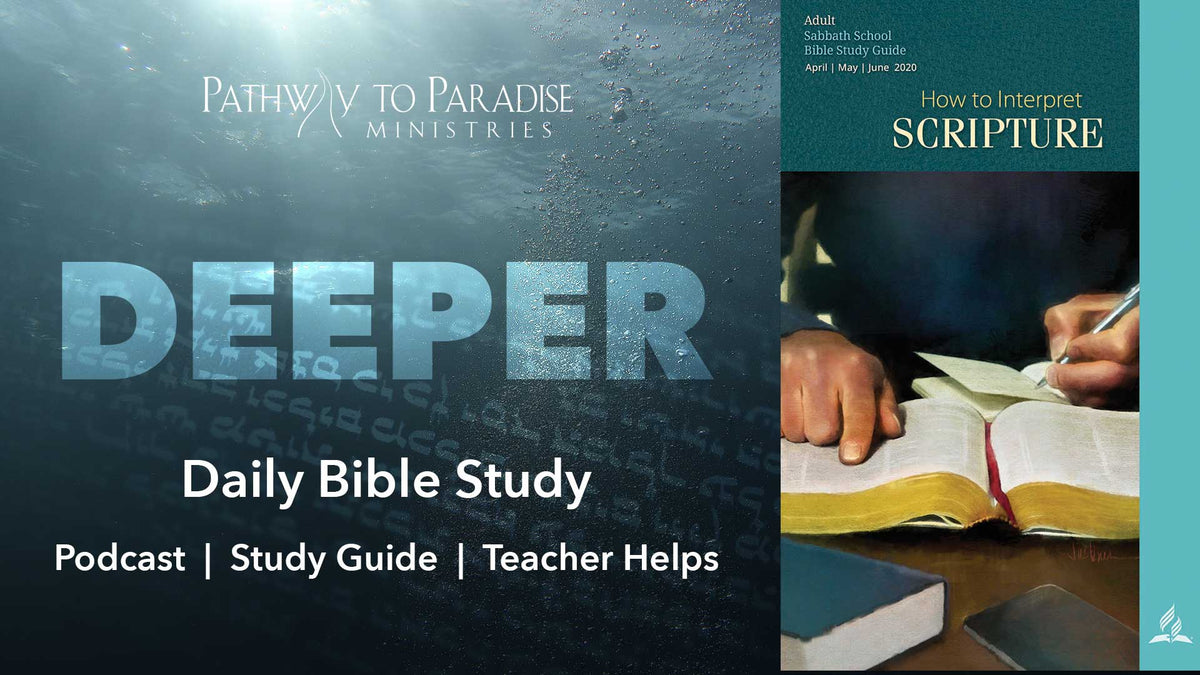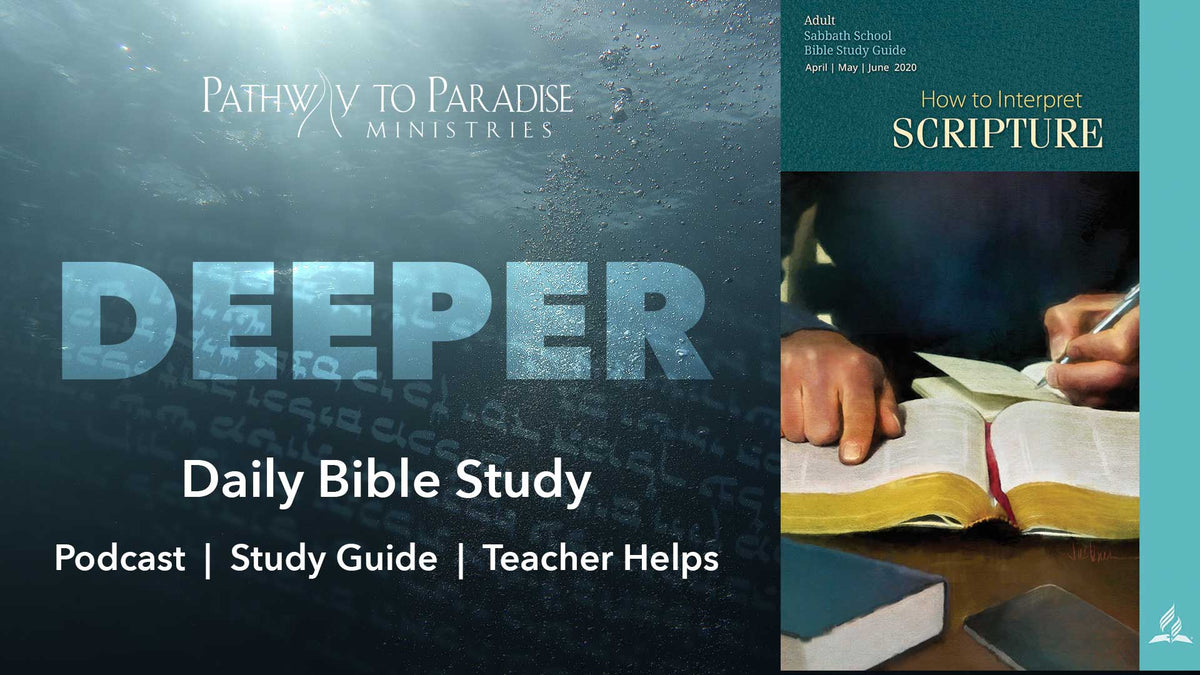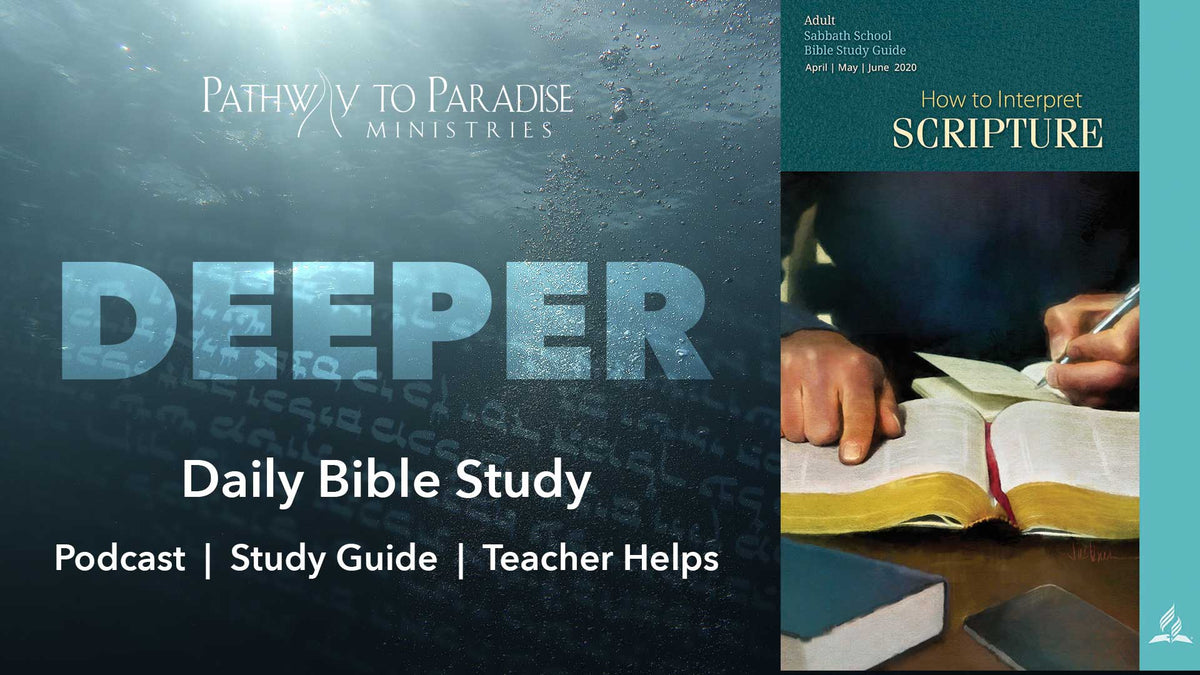From Jerusalem to Babylon (2020, Quarter 1, Lesson 2)

Sabbath (January 4): From Jerusalem to Babylon
About 600 years before Jesus Christ was born, Babylon invaded Judah and defeated Jerusalem several times. The first invasion in 605 BC resulted in many, but not all, of the temple treasures being captured. During this invasion Daniel, his friends, and many other Jews were taken captive to Babylon. In 597 BC the Babylonians returned and took “all the treasures of the house of the Lord” (2 Kings 24:13). At this time King Jehoiakim of Judah and the prophet Ezekiel were taken captive. Finally, when Judah’s King Zedekiah rebelled against Nebuchadnezzar, the Babylonians returned and completely destroyed Jerusalem, burned the temple, and took still more captives to Babylon. This sad history sets the historical backdrop for the book of Daniel, and for our study of this week’s lessons.
Every institution established by Seventh-day Adventists is to be to the world what Joseph was in Egypt and what Daniel and his fellows were in Babylon. As in the providence of God these chosen ones were taken captive, it was to carry to heathen nations the blessings that come to humanity through a knowledge of God. They were to be representatives of Jehovah. They were never to compromise with idolaters; their religious faith and their name as worshipers of the living God they were to bear as a special honor. {6T 219.1}
Discussion Questions:
-
Read Daniel 1:1,2. Into what land did Nebuchadnezzar take the temple vessels? (The land of Shinar.) What other important Bible story took place in Shinar? (The building of the Tower of Babel, see Genesis 11:1-5.) How would you describe the attitude of the tower builders toward God, and those that worship God? (Answers will vary.)
The men of Babel had determined to establish a government that should be independent of God. … Their confederacy was founded in rebellion; a kingdom established for self-exaltation, but in which God was to have no rule or honor. Had this confederacy been permitted, a mighty power would have borne sway to banish righteousness—and with it peace, happiness, and security—from the earth. For the divine statutes, which are “holy and just and good” (Romans 7:12), men were endeavoring to substitute laws to suit the purpose of their own selfish and cruel hearts. {PP 123.1}
-
Read Revelation 18:1-4. How would you summarize the threats to God and His people made by spiritual Babylon at the end of time? (At its core, Babylon in the Bible represents humanity rebelling against God’s authority, God’s law, and God’s right to punish sin.)
-
Read Daniel 1:1-4. What two specific things, or groups of things, did Nebuchadnezzar take from Jerusalem to Babylon? (Temple vessels and “children of Israel, and of the king’s seed.”) What might the temple vessels represent spiritually today that are in danger of being taken captive to Babylon? (The Biblical and life-saving truths given by God to Seventh-day Adventists, such as the everlasting gospel sanctuary message, the Sabbath, prophetic insight into end-time events, and the Three Angels’ Messages.) What might the “children of Israel” represent today? (Daniel, his friends, and the other “children of Israel” taken captive to Babylon may represent God’s people today that are in danger of being swept away by every wind of false doctrine.)
Sunday (January 5): God’s Sovereignty
The Bible presents God as humanity’s Creator, and as One Who guides the affairs of men while respecting our freedom of choice. However, even though He allows us to make our own decisions, He does not promise to necessarily shield us from the results and natural consequences of those decisions. In today’s lesson we will take a closer look at how God’s sovereignty played out in the destruction of Jerusalem.
Discussion Questions:
-
Read Daniel 1:1,2. What does verse 2 reveal about the true reason Jerusalem fell to Babylon? (“[T]he Lord gave Jehoiakim king of Judah into his hand.” God allowed it to happen.) Do you think this was surprising to the Jews when it happened? Why or why not? (Among the many mistakes that Israel made in the Old Testament was the presumptuous belief that God would never allow them to be taken captive by their enemies. However, God had clearly warned through many prophets what would happen if they continued in rebellion and sin.) What lessons should we learn from their mistakes? (Answers will vary.)
-
Read the statement below from the book The Desire of Ages and discuss why ancient Israel may have been led to believe that God would overlook their continued, unrepentant sin. In what ways may the danger of presumption be facing God’s people today?
[P]resumption is Satan’s counterfeit of faith. Faith claims God’s promises, and brings forth fruit in obedience. Presumption also claims the promises, but uses them as Satan did, to excuse transgression. Faith would have led our first parents to trust the love of God, and to obey His commands. Presumption led them to transgress His law, believing that His great love would save them from the consequence of their sin. It is not faith that claims the favor of Heaven without complying with the conditions on which mercy is to be granted. Genuine faith has its foundation in the promises and provisions of the Scriptures. {DA 126.1}
-
Read 2 Kings 21:10-16; 24:18-20; 2 Chronicles 36:14-17; and Jeremiah 3:13. For what reasons did God allow Jerusalem to be destroyed? (The many reasons include idolatry, violence, rebellion against God and earthly rulers, and rejection of the prophets.) Do we still face these dangers today? (Unfortunately, yes.) What can help us individually and corporately as a church avoid repeating the mistakes made by Israel and Judah? (Answers will vary.)
Monday (January 6): Faith Under Pressure
We have all faced situations that challenge our faith in, and faithfulness to, God. Yet these situations and times in our lives ultimately reveal the true quality of our love for God, just as it did for Daniel in Babylon. In today’s lesson we will look at some biblical “keys for success” when our faith is under pressure.
Discussion Questions:
-
Read Daniel 1:3-5. What plans did the king of Babylon have for Daniel and the other young people taken captive from Jerusalem? (They were to be educated in the schools of Babylon and then “stand before,” or serve, the king.) How do you think Daniel felt when he realized that for the rest of his life he would be forced to live and work in an environment highly opposed to God and the principles of heaven? (Answers will vary.) How have you faced times of similar challenge and discouragement in your life? (Answers will vary.)
Let us be hopeful and courageous. Despondency in God’s service is sinful and unreasonable. He knows our every necessity. To the omnipotence of the King of kings our covenant-keeping God unites the gentleness and care of the tender shepherd. His power is absolute, and it is the pledge of the sure fulfillment of His promises to all who trust in Him. He has means for the removal of every difficulty, that those who serve Him and respect the means He employs may be sustained. His love is as far above all other love as the heavens are above the earth. He watches over His children with a love that is measureless and everlasting. {MH 481.4}
-
Read Proverbs 3:6. What principle of life is revealed in this passage? (If we make God first in our life, He will “direct our paths.”) What do you think it means that God will “direct our paths”? (Answers will vary. He will give us the faith and wisdom needed in every situation that we might face.) Do you think Daniel lived by this principle? (Yes!)
Our heavenly Father has a thousand ways to provide for us of which we know nothing. Those who accept the one principle of making the service of God supreme, will find perplexities vanish and a plain path before their feet. {MH 481.2}
-
Read Daniel 1:21. What encouragement can we take from the fact that Daniel “continued” to serve God faithfully his entire life in Babylon? In what ways can his life be a role model for us? (Answers will vary.)
The life of Daniel is an inspired illustration of what constitutes a sanctified character. It presents a lesson for all, and especially for the young. A strict compliance with the requirements of God is beneficial to the health of body and mind. In order to reach the highest standard of moral and intellectual attainments, it is necessary to seek wisdom and strength from God and to observe strict temperance in all the habits of life. In the experience of Daniel and his companions we have an instance of the triumph of principle over temptation to indulge the appetite. It shows us that through religious principle young men may triumph over the lusts of the flesh and remain true to God’s requirements, even though it cost them a great sacrifice. {SL 23.1}
Tuesday (January 7): Firm Resolution
The enormity of Daniel’s challenge to remain faithful to God becomes clearer when we remember that Nebuchadnezzar’s objective was to completely re-educate and indoctrinate the Hebrew captives into the Babylonian worldview and religion. In a high-pressure environment like this, it would have been very easy for Daniel, Hananiah, Mishael, and Azariah to make compromises and eventually conform to the influences around them. The fact that they didn’t provides us with powerful testimonies to the power of the will.
Discussion Questions:
-
Read Daniel 1:7-14. Many of us have read and heard this story so many times that we often fail to realize the risk that they took in refusing to eat the king’s food and wine. What thoughts do you think went through their heads as they tried to decide how to respond to this situation? (Answers will vary.) What clue are we given in verse 10 about the potential danger that their decision put them in? (It could risk their life and the life of Melzar, their “supervisor.”)
-
Read Joshua 24:15. What challenge did Joshua give in this verse that Daniel and his friends may have been remembering as they made their decision? (Obedience, and disobedience, to God is a choice. We have been given freedom of will to make that choice, and this freedom can never be taken away, even in extremely difficult and dangerous situations.)
-
Read the following passages about the power of the will and discuss the importance of this gift that God has given us:
The will is the governing power in the nature of man, bringing all the other faculties under its sway. The will is not the taste or the inclination, but it is the deciding power, which works in the children of men unto obedience to God, or unto disobedience. {CG 209.1}
-
Read 1 Peter 4:12,13. Is there really such a thing as a small trial or temptation? Why or why not? (Answers will vary.) What does the following statement suggest about the significance of even “little” tests in our lives: “Those who do not overcome in little things, will have no moral power to withstand greater temptations” (Testimonies for the Church, vol. 4, p. 574)
Wednesday (January 8): Unblemished and Wise
The Bible is clear that God designed our bodies to be temples of the Holy Spirit, and that He wants to dwell within us (see 1 Corinthians 3:16 and 6:19,20). The decision that Daniel and his friends made in Babylon in regards to their physical health sets the stage for their continued obedience and faithfulness to God in the years that follow. Their decision also provided God with an opportunity to make a powerful impression on those around them in Babylon.
Discussion Questions:
-
Read Daniel 1:15,16. What was the result of Daniel’s “health challenge”? (He and his friends were healthier physically, and sharper mentally, than those that ate the king’s food and wine.) What impact do you think this made on Melzar? (He was at least impressed enough to allow them to continue their “Hebrew diet”!)
-
Read 2 Peter 1:3,4. What promise is given to us in this passage? (That we can be partakers of the divine nature.) What do you think this means? (Answers will vary. God has promised that He can restore His image, or character, in those that follow His laws and allow Him to work in their lives.)
-
Read 2 Peter 1:5-8. Temperance is included in the middle of this list of “Christian graces” that lead to sanctification. What does this reveal about the importance of how we treat our bodies? (It’s very important! God has created humanity with the physical, spiritual, and mental aspects of our beings combined.)
-
In the previous lesson we studied the power of the will. Read the passage below and discuss the relationship between appetite and the will:
Through appetite, Satan controls the mind and the whole being. Thousands who might have lived, have passed into the grave, physical, mental, and moral wrecks, because they sacrificed all their powers to the indulgence of appetite. The necessity for the men of this generation to call to their aid the power of the will, strengthened by the grace of God, in order to withstand the temptations of Satan, and resist the least indulgence of perverted appetite, is far greater than it was several generations ago. But the present generation have less power of self-control than had those who lived then. Christian Temperance and Bible Hygiene, 37, 1890 {CD 167.2}
Thursday (January 9): Final Exam
The re-education of Daniel and other captives in Babylon followed a progression of experiences and lessons designed to change their worldview, value system, religious convictions, and allegiance. This re-education involved several steps, including:
-
Change of name. Daniel, Hananiah, Mishael, and Azariah are Hebrew names, and contain references to God (El and Yahweh). The Babylonian names given to them—Belteshazzar, Shadrach, Meshach, and Abed-Nego—were names that praised Babylonian gods like Bel, Nabu, and Aku.
-
Learning a new language. The major languages of Babylon included Aramaic and Akkadian. Aramaic was an “international language,” and Akkadian was the literary language used to convey the religious and cultural traditions of the empire. In this stage students were exposed to stories and legends of Babylon.
-
Acceptance of a Babylonian worldview. The final stage in Babylonian re-education was to bring the captive to an acceptance of a Babylonian worldview. The purpose of this goal “was twofold: to fill the student’s mind with the theological and political ideology current in the capital and to prepare him for an apprenticeship as a junior asipu, a position that we know from colophons was held by many novice scribes. As far as exposure to literature goes, the storytelling that characterized the first phase has given way to more serious matters, the inculcation of a world-view and the acquisition of practical expertise” (A.R. George, The Babylonian Gilgamesh Epic [Oxford: Oxford University Press, 2005], 1:36). In other words, the purpose of this final stage of re-education was to start thinking and living like a Babylonian.
Discussion Questions:
-
In what ways might we see the strategies and goals involved in Babylonian re-education reflected in our culture today? (Answers will vary. Change of name. Nothing defines our identity more than our name, and Nebuchadnezzar attempted to get Daniel and his friends to question and abandon their Jewish identity by changing their names. In the same way, evolution, the sexual revolution and gender identity crisis, and many other forces today are leading millions to question and abandon their God-given identities. Learning a new language. Contemporary culture has saturated people with media such as movies, music, video games, and television, to the point that these are the only things they can think about or discuss. At the same time, biblical literacy continues to decline, even among many regularly church-going people. Acceptance of a Babylonian worldview. Revelation 18 reveals how “Babylonians” live: under the influence of demonic mind control (vs. 2), in denial of sin and the coming judgments of God (vs. 7,8), for the gratification of appetite and sensual desires (vs. 11-14), for the purpose of material gain and prosperity (vs. 15-19), and in rejection of God’s prophetic Word (vs. 20).
-
Read Daniel 1:17-21. What enabled Daniel and his friends to learn, and even excel at, the education of Babylon, and still remain obedient and faithful to God? (They had “purposed in their heart” to remain faithful.) Was the Babylonian re-education system successful with them? Why or why not? (Answers will vary)
-
Read the statement below and discuss the purpose of true education:
Love, the basis of creation and of redemption, is the basis of true education. This is made plain in the law that God has given as the guide of life. The first and great commandment is, “Thou shalt love the Lord thy God with all thy heart, and with all thy soul, and with all thy strength, and with all thy mind.” Luke 10:27. To love Him, the infinite, the omniscient One, with the whole strength, and mind, and heart, means the highest development of every power. It means that in the whole being—the body, the mind, as well as the soul—the image of God is to be restored. {Ed 16.1}
Friday (January 10): Wisdom of the Wise
Wisdom literature in the Bible (such as Job, Proverbs, Ecclesiastes, Song of Solomon, and some of the Psalms) places strong emphasis on obedience to the law of God and are often grounded in recognition of God as Creator, because God has created natural and spiritual laws that should be followed for a happy and prosperous life. The last chapter of Daniel mentions “the wise” twice (see Daniel 12:3,10), and promises us that it is possible to live today like Daniel did in the midst of Babylon.
Discussion Questions:
-
The Bible speaks a lot about true wisdom. Read the following passages and discuss what they reveal about how to obtain true wisdom:
-
Job 38-41. (True wisdom comes by recognizing God as our Creator.)
-
Ecclesiastes 12:13,14. (True wisdom comes as we obey God’s commandments and recognize Him as our Judge.)
-
1 Corinthians 1:23,24. (True wisdom comes by accepting the gospel of Jesus Christ’s death on the cross as our sacrifice for sin.)
-
1 Corinthians 2:6-16. (True wisdom is a gift of God given through the Holy Spirit.)
-
-
Read Revelation 14:6-12. For what reason might the Three Angels’ Messages be regarded as a “wisdom text”? What similarities exist between it and the “wisdom texts” we read in Job and Ecclesiastes? (The First Angel’s Message references the everlasting gospel and refers to God as Judge and Creator. This passage concludes as Ecclesiastes does—with a call to obey God’s commandments.)
-
Read Revelation 7:1-3. Where do God’s servants at the end of time receive their wisdom, and what is this experience called? (It is called the seal of God, and is given through the Holy Spirit writing God’s law on the mind and heart.)
Listen to the Daily Podcast!
Go to the DEEPER Webpage or Listen Below
Leave a comment
Comments will be approved before showing up.
Also in DEEPER Bible Study Notes

Living by the Word of God (2020, Quarter 2, Lesson 13)

Dealing With Difficult Passages (2020, Quarter 2, Lesson 12)


Tim Rumsey
Author